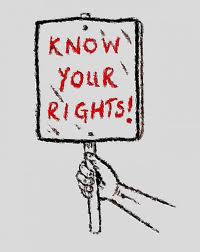In 2012, Marie-Claire McLaughlin started work at a car firm Charles Hurst Limited, working an average of 47.8 hours per week. She suffered from bouts of depression and panic attacks, so she asked her employer if she could reduce her working hours to 40.
In her application, she explained the reason was due to the impact on her mental health.
However, her employer treated her application as an ordinary request for flexible working, and took 14 months to process it.
So she took her case to the employment tribunal.
They ruled that the company had taken far too long to make a decision. Under the Disability Discrimination Act 1995, her employer should have made ‘reasonable adjustments’ for Marie-Claire at least 4.5 months sooner.
Marie-Claire was awarded over £11,000 because of the negative impact on her mental health and wellbeing. After her working hours were adjusted, she found it much easier to cope. She had little or no absence from work, and found it much easier to get the job done.
The company apologised and fully accepted the ruling.
What this means to you
If you’re physically or mentally disabled, your employer should make ‘reasonable adjustments’ at their own expense. If they don’t, it could be illegal.
You should not be disadvantaged by any rules, practices and procedures at your workplace (unless your employer has a fair reason).
You should always be treated with respect, otherwise it might be harassment.
You should also be protected from any bullying and teasing that violates your dignity or causes offence.
In fact, you should not be treated unfavourably in any way. You should get the same opportunities and treatment as anyone else.
If your employer breaks the law, you have the right to make a claim for compensation.
Are you disabled?
In law, everything has to be carefully defined.
Disability is defined as any physical or mental impairment that has a ‘substantial and long-term affect on your ability to carry out normal day-to-day activities’.
If your ability is compromised in any of these areas, your employer should not discriminate against you because of this disability:
- Are you independently mobile?
- Can you lift, carry and move ordinary objects?
- Can you concentrate, learn, understand and remember things?
- Can you use your hands, for example, for writing?
- Is your physical coordination OK?
- How about your speech, hearing and eyesight?
- Are you able to control your bladder and bowel?
- Can you recognise physical danger?
The impairment must have lasted at least a year OR be expected to last at least a year (or until death if sooner).
Need help?
For a FREE assessment of your disability discrimination case, call
We have already helped thousands of people to win millions of pounds in compensation.
You have a choice of ways to pay, including ‘no win, no fee’.
